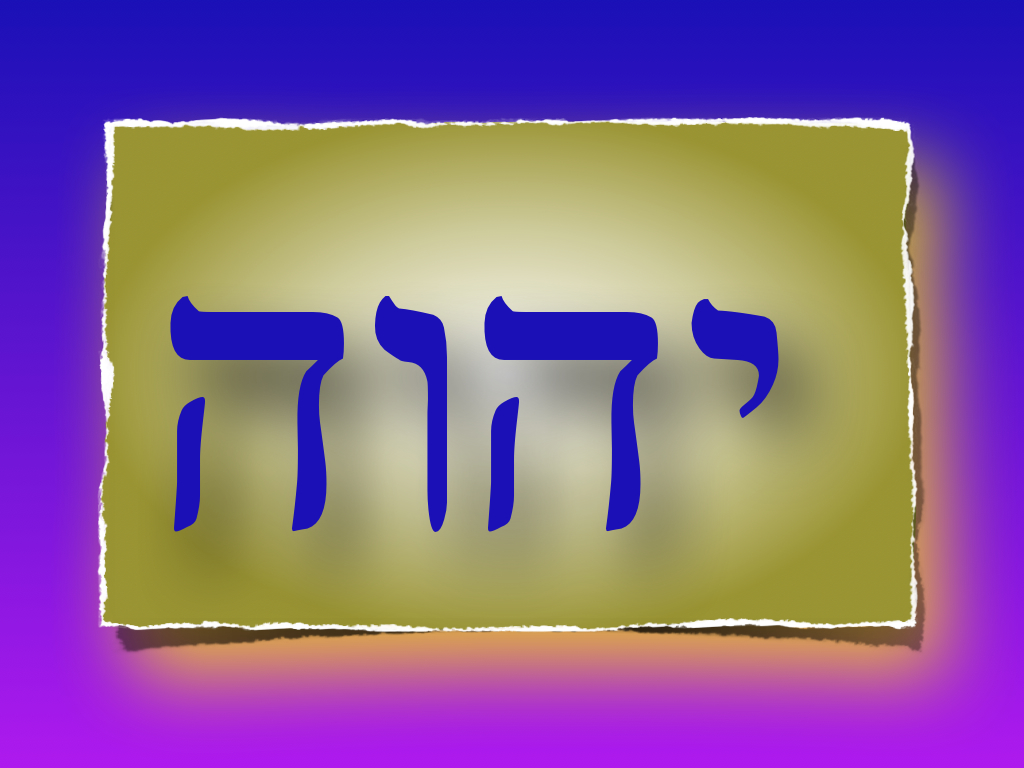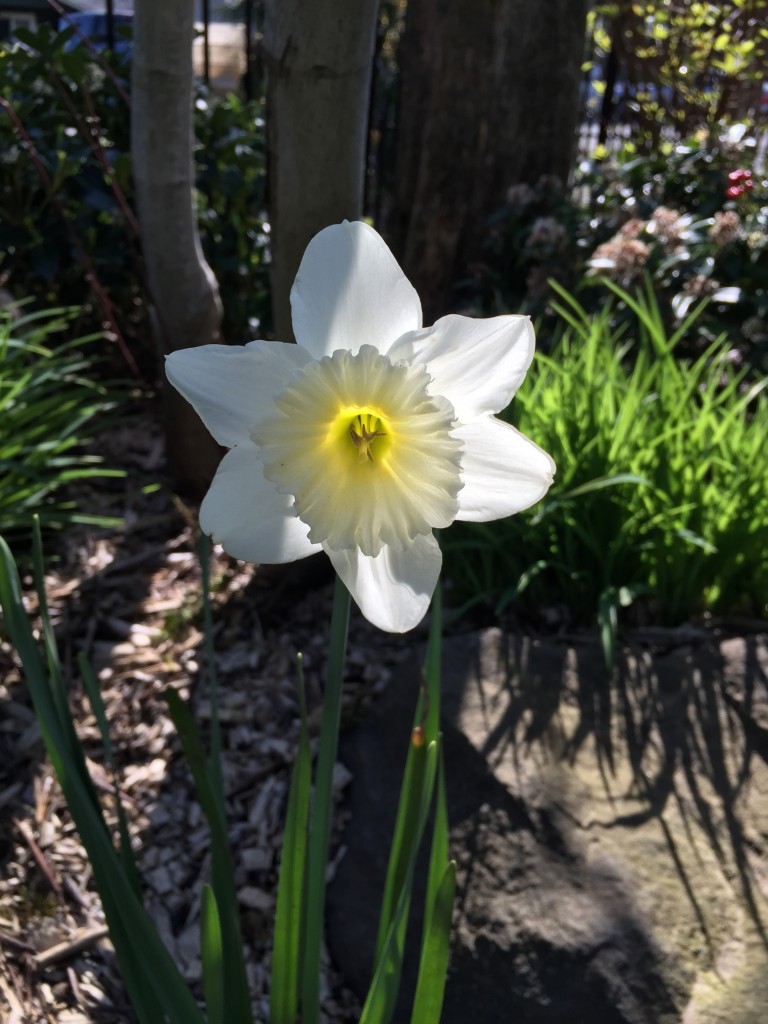Tag Archives: Yehovah
Indisputable PROOF from the Hebrew manuscripts of Luke that it’s “Yehovah”, NOT “Yahweh”, “Y’huwah”, etc.!

This is hot off the press, and I’m excited to pass this presentation by Nehemia Gordon on to you! — Natan Lawrence
In this episode of Hebrew Voices, Hebrew Luke and John Found in Vatican Junk Box, Nehemia Gordon talks about how he discovered Hebrew manuscripts of Luke and John! These manuscripts have never been shared with the public before this was aired and are particularly interesting when compared to the Greek text. They are also another proof that the name of God is unequivocally Yehovah and clearly show the pronunciation of the name Yeshua.You can download a full transcription and translation of the surviving portions of the Hebrew gospels of Luke and John from the Vatican below. Elvira wrote: “I am so glad you are getting this out there to the world. I was able to read along with the download of the documents as you read them out loud. What a privilege! What an era to live in!”
This information is ground breaking!
I apologize to those who are not able to view the video, since it is behind a paywall. In the video, you can see the actual manuscripts and see and read the Hebrew yourself. This I did, and it was astounding to see this with your own eyes, and it is faith building! Biblical Truth is being restored in our day in fulfillment of Peter’s prophecy in Acts 3:21:
Repent therefore and be converted, that your sins may be blotted out, so that times of refreshing may come from the presence of the Lord, and that He may send Jesus Christ, who was preached to you before, whom heaven must receive until the times of restoration of all things, which God has spoken by the mouth of all His holy prophets since the world began.
In this video, Nehemia also proves linguistically from the Hebrew Luke that Yeshua (not Yahshuah) is the proper pronunciation of the Messiah’s name, and that the vowels in the name A-D-O-N-A-I cannot be the vowels for Y-H-V-H, thus definitively disproving the Yahweh theory for the pronunciation of YHVH.
For those of you who are not able to download this video, here is the transcript of it (Nehemia is being interviewed by Michael Rood):
Hebrew Voices #72 – Hebrew Gospels from a Vatican Junk Box
You are listening to Hebrew Voices with Nehemia Gordon. Thank you for supportingNehemia Gordon’s Makor Hebrew Foundation. Learn more at NehemiasWall.com.
Nehemia: And as I’m looking through the junk box, I’m seeing hundreds of pages from many different books, and all of a sudden I come across a page, and I look at this and I say, “Wait a minute. That’s a Gospel in Hebrew.”
Benjamin Netanyahu: Le ma’an Zion lo ekhesheh, u’l’ma’an Yerushalayim lo eshkot. (For Zion’s sake I will not be silent, and for Jerusalem’s sake I will not rest. Isaiah 62:1)
Michael: This is a day I’ve been waiting for for nearly two decades. What we are going to present to you tonight, I have been waiting for a long time since Nehemia came out with his original work on Shem-Tov’s Hebrew Matthew, and we toured the United States over a two-month period of time with Raiders of the Lost Book – Discoveries in the Ancient Hebrew Text of the Gospel of Matthew. And Nehemia had, at that time, uncovered several texts of the Hebrew Matthew that had not been known, that had been hidden away in the archives of Jewish scribes for an untold number of years, and because of his research, we were able to solve problems that were unintelligible in the Greek text of the Gospel of Matthew, and also in the English text.
And so, these discoveries in the Hebrew text of Matthew gave us insights into the Gospels that had eluded scholars for generations. Now, Nehemia is going to bring forth some of the other Gospels that he has now found in the Hebrew language. We have Nehemia’s book, The Greek Jesus Versus the Hebrew Yeshua. This is where he lays out the detail of solving the problem of Matthew 23. And ladies and gentlemen, I suggest that you get these and you study them, because it’s going to lay the groundwork of what, now, we’re able to lay out after all these years. You are going to be the first ones to see it, and tonight I’m going to be the first one to see some of these manuscripts for the first time myself.
Nehemia, it’s good to have you back.
Nehemia: Great to be back.
Michael: And I am looking forward to what is happening tonight on Shabbat Night Live.
Nehemia: Well, so this is what we’ve been waiting several weeks for, Michael. I’m really excited about this. I told the people last week about the Vatican junk box, and it really came out of that research I was doing with Matthew 23. I had found these manuscripts of Hebrew Matthew. George Howard found nine, and I had found 14, and I said, “There’s got to be more.” And it turned out, by the time we did that video I believe we had 26, and later I found two more. But the process was, I would get these microfilms and I would put them on the reader, analogue reader, and I’m swirling them, looking through them, and one of these microfilms was in the Vatican, and it said, “Miscellaneous”. And I said, “Well, that’s interesting. Let’s see what’s miscellaneous.” And as I’m looking through, I’m realizing this is a junk box. They have a loose page…
Michael: What do you mean by “junk box”?
Continue readingThe Name Yehovah Found 1015 Times in Ancient Hebrew Manuscripts
In this video published on January 25, 2018, Hebrew scholar, Nehemia Gordon discusses manuscript evidence for the pronunciation of the personal name of YHVH with his team of researchers. Gordon and his team have been searching ancient Hebrew manuscripts of the Tanakh (OT) that go back to the ninth century A.D. After searching through thousands of ancient manuscripts and visually looking for the Hebrew letters Y-H-V-H, they have found 1015 instances where the Jewish sages have filled in the vowel points of these four letters for the name of Elohim so that it reads Yehovah. To date, they have not found a single instance where Y-H-V-H has been written as Yahweh. At 41:40 in the video, Gordon and Keith Johnson discuss this fact. Gordon has put together a data base listing the places in the Bible where the name Yehovah occurs along with the name of the ancient manuscript in which Yehovah is found.
Here is a short version of this info:
In this short video, Nehemia Gordon explains why the six letter in the Hebrew alphabet is pronounced as a v and and not as a w. This information has a profound impact on how to vocalize or pronounce the personal name of YHVH.
This video is an abbreviated version of a much longer teaching Nehemia presented on his website where he gives more examples from ancient Hebrew manuscripts why the vav was correctly pronounced as a v and not as w by most ancient Hebrew speaking Jews, as well as how the w pronunciation came into the Hebrew language much later. He shows actual photos of these manuscripts in the longer version.
I will lift up mine eyes unto the mountains…
I will lift up mine eyes unto the hills/mountains, from whence cometh my help. My help cometh from Yehovah, which made heaven and earth. He will not suffer thy foot to be moved: he that keepeth thee will not slumber. Behold, he that keepeth Israel shall neither slumber nor sleep. Yehovah is thy keeper: Yehovah is thy shade upon thy right hand. The sun shall not smite thee by day, nor the moon by night. Yehovah shall preserve thee from all evil: he shall preserve thy soul. Yehovah shall preserve thy going out and thy coming in from this time forth, and even for evermore. (Psalm 121:1–8)
Just returned from my first backpack trip of the season into the Cascade Mountains near Mount Hood that are about one-and-a-half hours from my house. Accompanying me were several of my boys. We hiked into a small mountain lake where we hung out swimming, having Bible studies, praying and hiking. I also taught them some wilderness survival and bushcraft skills.
I was up early every morning with my Bible in hand watching the sun come up over the hills shining on the lake and our camp. it’s always amazing how it’s easier to hear the voice of YHVH when we get away from the physical and spiritual noise of the city. The awesome splendor of his creation literally surrounds and envelops a person, so that all one can do is think about him and revel in the beauty of his nature and lift up one’s hands in quiet and reverent praise to the of the one who created it all! Soli deo gloria!!!
One evening around the campfire, Kaleb led us in a Bible study on Revelation 21. As a result of that, after a sunrise swim the next morning in the lake’s pristine waters, I then let the Ruach wash me in the water of the Word of Elohim, and I was blessed with some wonderful insightful revelations from that chapter, which I will share with you in the near future.
Please enjoy these photos.

I’m never happier than when I’m away from the city and up in Yehovah’s creation. My family has been trekking these same mountains for more than 100 years!
The Name of the Creator and How NOT to Pronounce It
Exodus 3:14–15, I AM THAT I AM. The name YHVH is Elohim’s memorial name forever. It reflects that fact that he is; that he is undefinable in human terms, and that he has always existed. This is the name by which he is to be remembered (not forgotten as is the case with the ineffable name concept of the rabbinic Jews whereby the names of deity are forbidden to be used).
In nearly all Bibles, whenever the tetragrammaton occurs, it has been substituted by the English word Lord. In some Bibles, Lord is written in all capital letters (i.e. LORD) to show that it’s the Hebrew word YHVH. This name has a variety of meanings including “the existing one” and “I am that I am.”
YHVH reveals his personal name in Exodus 3:14 and 15 where we read:
14 And Elohim said unto Moses, I AM THAT I AM (EHYEH ASHER EHYEH): and he said, Thus shalt thou say unto the children of Israel, I AM (EHYEH VHVT) hath sent me unto you. 15 And Elohim said moreover unto Moses, Thus shalt thou say unto the children of Israel, YHVH (vuvh) the Elohim of your fathers, the Elohim of Abraham, the Elohim of Isaac, and the Elohim of Jacob, hath sent me unto you: this is my name [Heb. shem] for ever, and this is my memorial [Heb. zeker] unto all generations.
Here are some examples of how various Bible versions translate the name of YHVH:
- I Am That I Am (KJV)
- I Am Who I Am (NAS, NIV, NKJV
- I Am That Which I Am (YLT)
- I Shall Be As I Shall Be (The ArtScroll Stone Edition Tanach)
- I Will Be What I Will Be (The Gutnick Edition Chumash, JPS)
- I Will Be There Howsoever I Will Be There (The Schocken Bible)
- I Am the Being (LXX, Brenton)
Exodus 3:15 states that YHVH is the name Moses was to use when referring to I AM THAT I AM. Both the former and latter are forms of the Hebrew verb hayah meaning “to be.” YHVH instructed that YHVH was to be his memorial name forever. In other words, humans were to use YHVH to remember him by. There is no indication here that it was YHVH’s intention that his name was to be forgotten or hidden through euphemisation. The word memorial is the Hebrew word zeker (Strong’s H2143) and means “remembrance, memory.”
It must be noted here that we don’t refer to YHVH as I Am, for were we to do so it would be necessary to say “I Am,” and in all reality, we aren’t the I Am, but YHVH is the I Am. Just so there is no confusion when communicating YHVH’s name in every day speech, the Continue reading
Shabbat Shalom from My Garden of Eden to You
May these photos of flowers from my garden brighten you Shabbat day! Praise YHVH Elohim the Creator for the beauty of his creation, which is a love-gift to us. As he has made this earth beautiful for our enjoyment and blessing, may we be a river of life to those around us as we brighten their days with YHVH’s love and beauty!
To some people, marsh marigold is a noxious weed, but if planted in the right spot, it makes a wonderful addition to the garden. This teaches us that each person (who in YHVH’s sight is like a flower) if planted in the right place can become a blessing to YHVH’s creation. Each person has his own place to grow and bloom in YHVH’s kingdom.
New Video: Why Use the Hebrew Names of Elohim?
Why use the Hebrew names for Elohim? Short answer: Because the Bible, the Word of Elohim tells us to do so. Men in their “wisdom” always have “better ideas” about things than to follow the simple commands of Elohim. Both the mainstream church and mainstream Judaism are guilty of adhering to doctrines and traditions of men by which the Word of Elohim has been made of none-effect. The is definitely true with regard to their non-use of the biblical Hebrew names of Elohim.
This video addresses the following issues: What’s the big deal with the Hebrew names of Elohim as found in the Bible? Should we be using them? What’s wrong with the pagan name substitutes for Elohim that are found in our English Bibles? How is the resurgence of the use of the Hebrew names among Bible believers worldwide a fulfillment of biblical prophecy? What do the Scriptures say about the importance of using the Hebrew names for Elohim? This video answers these questions and much more.
























